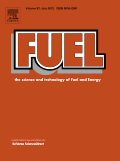
Fuel
Scope & Guideline
Igniting Innovation in Energy Solutions
Introduction
Aims and Scopes
- Fuel Production and Conversion Technologies:
The journal covers diverse methods for producing fuels from various sources, including fossil fuels, biomass, and waste materials. This includes studies on pyrolysis, gasification, and catalytic processes to optimize fuel yields. - Energy Storage Solutions:
Research on advanced materials for efficient energy storage, particularly in batteries and supercapacitors, is a core focus. This includes studies on lithium-ion, sodium-ion, and other emerging battery technologies. - Environmental Impact and Sustainability:
Articles discussing the environmental implications of fuel use, including carbon capture technologies, renewable energy integration, and lifecycle assessments of fuel production processes are prevalent. - Electrocatalysis and Fuel Cells:
The journal publishes research on electrocatalysts for fuel cells, focusing on materials that enhance performance and reduce costs, as well as studies on hydrogen production and utilization. - Hydrate Formation and Gas Recovery:
Research on the behavior of gas hydrates, their formation mechanisms, and implications for natural gas recovery and CO2 storage are significant areas of interest. - Advanced Characterization Techniques:
The journal encourages studies that utilize innovative characterization methods for analyzing fuel properties, combustion behaviors, and material performance.
Trending and Emerging
- Carbon Capture and Utilization (CCU):
Research on innovative carbon capture technologies and their integration into existing fuel production processes is gaining momentum, reflecting the urgent need to address climate change. - Hydrogen Production and Storage:
The transition to hydrogen as a clean energy carrier has led to a surge in studies focusing on hydrogen production methods, storage technologies, and fuel cell applications. - Advanced Electrocatalysts for Energy Conversion:
There is an increasing interest in the development of novel electrocatalysts for various energy conversion processes, including CO2 reduction and hydrogen evolution. - Sustainable Biomass and Waste Utilization:
Research focusing on the conversion of biomass and waste materials into fuels and chemicals is on the rise, driven by the need for sustainable energy solutions. - Digitalization and Machine Learning in Energy Systems:
The integration of machine learning and artificial intelligence in optimizing energy systems and processes is an emerging trend that is increasingly featured in recent publications. - Nanotechnology in Energy Applications:
Studies involving nanomaterials and their applications in energy storage, catalysis, and fuel production are becoming more prominent, showcasing the potential for enhanced performance.
Declining or Waning
- Conventional Fossil Fuel Studies:
Research focused solely on conventional fossil fuel extraction and utilization has been decreasing as the field shifts towards renewable energy sources and sustainable practices. - Low-Temperature Combustion Technologies:
Although historically significant, the emphasis on low-temperature combustion technologies has waned in favor of cleaner combustion methods and alternative energy solutions. - Basic Theoretical Studies:
Papers that focus purely on theoretical models without practical applications or experimental validation are less frequently published, as the journal increasingly prioritizes empirical research. - Single-Use Plastics and Fuels from Waste:
Research specifically on the conversion of single-use plastics to fuels has declined as the focus broadens to more comprehensive waste management strategies and circular economy approaches. - Niche Biofuel Research:
While biofuels remain a topic of interest, niche areas within biofuel research, particularly those with less commercial viability, have seen a decrease in focus.
Similar Journals

Energy Material Advances
Elevating the Future of Energy MaterialsEnergy Material Advances, published by the American Association for the Advancement of Science, stands at the forefront of energy research, showcasing groundbreaking studies in the realm of renewable energy, fuel technology, and materials science. With the journal's commitment to open access since 2020, it aims to democratize knowledge and foster innovation across a global community of researchers, professionals, and students. The journal boasts an impressive impact factor, placing it firmly within the Q1 category across multiple disciplines including Energy (miscellaneous), Fuel Technology, and Renewable Energy, Sustainability and the Environment, highlighting its significance in advancing scholarly discussions. In the latest Scopus rankings, Energy Material Advances ranks among the top 10% of journals in its field, affirming its role as a pivotal resource for current and emerging trends in energy materials. The journal is dedicated to facilitating collaborative efforts and inspiring novel approaches to the challenges posed by energy sustainability and technological advancement.

Catalysts
Exploring the Frontiers of Catalysis and ChemistryCatalysts is a leading academic journal in the field of catalysis, published by MDPI since 2011 and well-regarded for its commitment to open access publishing. Based in Switzerland, this journal delivers innovative research and reviews that span various aspects of catalysis, from heterogeneous and homogeneous catalysis to the development of novel catalytic systems. With a commendable impact factor and a notable Q2 ranking in both Catalysis and Physical and Theoretical Chemistry categories, Catalysts plays a critical role in advancing the scientific discourse in these fields. The open-access model ensures that all research articles are readily accessible to researchers and professionals worldwide, fostering collaboration and accessibility to high-quality scientific literature. As the journal continues to publish cutting-edge studies up to its convergence in 2024, it remains an essential resource for anyone involved in catalysis research, from seasoned professionals to emerging scholars.
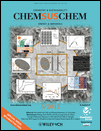
ChemSusChem
Leading the Charge in Chemical Engineering for SustainabilityChemSusChem is a premier interdisciplinary journal, published by WILEY-V C H VERLAG GMBH, that focuses on the critical fields of Chemical Engineering, Energy, Environmental Chemistry, and Materials Science. Since its inception in 2008, the journal has consistently maintained a Q1 ranking across multiple categories, highlighting its role as a vital resource for researchers and professionals dedicated to advancing sustainable chemical processes and technologies. With an impressive impact factor, it ranks 12th in General Chemical Engineering and is highly regarded within its scopes, indicating the journal's commitment to publishing high-quality, innovative research that addresses global challenges in energy and environmental sustainability. Though it operates on a subscription model, its contributions are essential for those in academia and industry seeking cutting-edge developments in sustainable chemistry. As it approaches its convergence span through 2024, ChemSusChem continues to shape the future of sustainable chemistry, making it a must-read for students, researchers, and practitioners alike.

Gas Science and Engineering
Transforming Ideas into Impactful Energy SolutionsGas Science and Engineering is a premier academic journal published by Elsevier, dedicated to advancing knowledge in the critical domains of energy engineering, fuel technology, and geotechnical engineering. With a notable impact factor that underscores its significance in the field, this journal provides a platform for researchers, professionals, and students to explore cutting-edge research and innovative methodologies. As evidenced by its strong performance in Scopus rankings—placing within the top quartiles for various categories—the journal is recognized for its rigorous peer-review process and commitment to open access, allowing for wider dissemination of knowledge. Based in the Netherlands, Gas Science and Engineering aims to foster collaboration and discussion among scholars and industry experts, making it an essential resource for anyone engaged in the study of gas sciences and related fields.
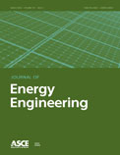
JOURNAL OF ENERGY ENGINEERING
Driving Research in Energy Systems and SustainabilityJOURNAL OF ENERGY ENGINEERING, published by the ASCE-Amer Soc Civil Engineers, serves as a pivotal resource in the fields of civil and structural engineering, energy engineering, and nuclear energy research. With an ISSN of 0733-9402 and an E-ISSN of 1943-7897, this esteemed journal demonstrates a consistent commitment to advancing knowledge in energy systems, sustainability, and waste management. Ranking within the second quartile in several categories—including Civil and Structural Engineering and Energy Engineering and Power Technology—this journal maintains a strong reputation, underscored by its Scopus rankings that place it in the top tiers of its discipline. Accessible from 1982 through 2024, the journal provides researchers and professionals meaningful insights through rigorously peer-reviewed articles, critical reviews, and case studies that address contemporary challenges in energy utilization and infrastructure development. Without open access options, it ensures the integrity and credibility of published work, showcasing influential research that contributes to sustainable solutions in energy and environmental frameworks. Researchers, professionals, and students alike will find the JOURNAL OF ENERGY ENGINEERING an indispensable platform for exploration and dissemination of innovative ideas within the realm of energy and engineering.
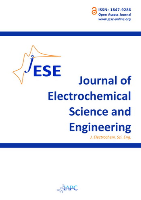
Journal of Electrochemical Science and Engineering
Fostering Breakthroughs in Materials Chemistry and Engineering.The Journal of Electrochemical Science and Engineering, published by the International Association of Physical Chemists (IAPC), serves as a vital resource for researchers and professionals in the fields of electrochemistry, materials chemistry, and chemical engineering. With an Open Access model since 2011, this journal ensures that groundbreaking research is freely accessible to a global audience, promoting collaboration and knowledge sharing. Situated in Croatia, it showcases cutting-edge developments while focusing on applied aspects related to electrochemical technologies. Notably, the journal holds a commendable Scopus ranking, placing it within the Q3 quartile for multiple categories, including Chemical Engineering (miscellaneous) and Electrochemistry. By fostering innovative research and comprehensive reviews, the Journal of Electrochemical Science and Engineering plays a crucial role in advancing the understanding and application of electrochemical processes, making it an indispensable platform for academics and practitioners alike.

Carbon Energy
Catalyzing interdisciplinary collaboration for global energy challenges.Welcome to Carbon Energy, an esteemed open-access journal published by WILEY that focuses on cutting-edge research in the field of energy and materials science. Since its inception in 2019, this journal has quickly established itself as a leading platform for disseminating impactful findings and innovations related to carbon-based energy solutions, renewable resources, and sustainability practices. With its impressive Q1 rankings in multiple categories—including Energy (miscellaneous), Materials Chemistry, and Renewable Energy—Carbon Energy is recognized for delivering high-quality, peer-reviewed content that meets the rigorous standards of the academic community. Through its open-access model, the journal ensures wide accessibility of research findings, making it an invaluable resource for researchers, professionals, and students alike. As we look toward the future, Carbon Energy aims to further its mission of advancing sustainable energy technologies and promoting interdisciplinary collaboration in tackling global energy challenges.

CHEMISTRY AND TECHNOLOGY OF FUELS AND OILS
Exploring Sustainable Pathways in Chemistry and TechnologyCHEMISTRY AND TECHNOLOGY OF FUELS AND OILS, published by SPRINGER, is a pivotal journal dedicated to advancing the understanding and technologies surrounding fuels and oils. With its ISSN 0009-3092 and E-ISSN 1573-8310, this journal has been a reliable resource in the field since its inception in 1965, providing insights into the latest research and developments up until 2024. While it currently holds a Q4 status across various quartiles, including Chemical Engineering and Fuel Technology as of 2023, the journal's commitment to disseminating valuable knowledge plays a crucial role in nurturing the academic discourse surrounding energy and chemical processes. Although it does not offer Open Access, the journal is critical for researchers, professionals, and students aiming to deepen their expertise in energy engineering, chemical engineering, and fuel technology. Its contributions underlie significant advancements in sustainable energy practices and fuel innovations, making it an essential read for those engaged in these crucial scientific domains.

INTERNATIONAL JOURNAL OF ENERGY RESEARCH
Transforming energy challenges into innovative solutions.INTERNATIONAL JOURNAL OF ENERGY RESEARCH (ISSN: 0363-907X; E-ISSN: 1099-114X), published by Wiley-Hindawi, stands at the forefront of energy research, offering a scholarly platform pivotal for advancing knowledge in the fields of energy engineering, nuclear energy, fuel technology, and renewable energy systems. With an impressive Q1 and Q2 ranking across several categories as of 2023, this journal reflects a commitment to high-quality, peer-reviewed research that addresses both theoretical and practical challenges in the energy sector. Now an Open Access journal since 2023, it enhances accessibility and dissemination of cutting-edge research to a global audience. Located in the United Kingdom, with an active publication history dating back to 1977, the journal aims to contribute to sustainable energy solutions and innovative technologies. Researchers, professionals, and scholars will find valuable insights and discussions here, bridging gaps in energy research and policy-making.
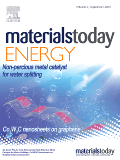
Materials Today Energy
Exploring Breakthroughs in Energy Technology and Materials ScienceMaterials Today Energy is a premier journal published by Elsevier, focusing on the interdisciplinary field of energy materials. With an ISSN of 2468-6069, the journal is renowned for its impactful research as evidenced by its impressive Q1 quartile rankings in multiple categories including Energy Engineering and Power Technology, Fuel Technology, and Renewable Energy. It stands out with strong Scopus rankings, highlighting its significance in the respective research communities, such as being ranked 3rd in Nuclear Energy and Engineering. Established from 2016 to 2024, the journal aims to provide a platform for innovative research that addresses the global demands for sustainable energy solutions. Although it is not open access, Materials Today Energy is accessible to a broad audience, encouraging collaborations among researchers, professionals, and students in the pursuit of advancing materials science and energy technologies. This makes it an essential resource for those looking to remain at the forefront of discoveries that shape the future of energy.